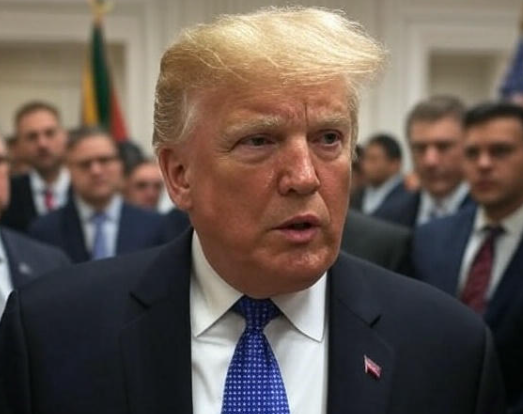Cape Town – President Cyril Ramaphosa has responded to US President Donald Trump’s announcement of a 30% tariff on imports from South Africa, calling the move a “unilateral” and “contested” interpretation of trade data between the two countries.
In a statement issued by the Presidency on Tuesday, Ramaphosa acknowledged receipt of formal communication from the US administration dated 7 July 2025, which confirmed South Africa as one of several nations facing the new tariff.
The tariff is expected to come into effect on 1 August.
According to Ramaphosa, the US justification for the tariff rests on what he described as a disputed view of the balance of trade.
“South Africa maintains that the 30% reciprocal tariff is not an accurate representation of available trade data,” the statement read.
Citing internal analysis, Ramaphosa said that 56% of goods entering South Africa do so at a 0% most-favoured-nation tariff, with 77% of US goods entering the country tariff-free.
PRESIDENT RAMAPHOSA RESPONDS TO US TARIFFS ANNOUNCEMENT
President @CyrilRamaphosa has noted the correspondence from President Donald Trump on the unilateral imposition of a 30% trade tariff against South Africa. The President has further noted that South Africa is one of a…
— The Presidency 🇿🇦 (@PresidencyZA) July 8, 2025
“In our interpretation, the average tariff on imported goods entering South Africa stands at 7.6%,” he added.
Despite the US move, Ramaphosa said South Africa remained committed to pursuing a “balanced and mutually beneficial” trade relationship.
He welcomed indications from Washington that the tariff could be revised following the conclusion of ongoing negotiations.
Talks between South Africa and the US have been ongoing, with the most recent engagement taking place on the margins of the US-Africa Summit held in Luanda on 23 June 2025. At the meeting, South African officials were informed of a new US trade template for sub-Saharan Africa, which Pretoria is still waiting to receive.
In the interim, Ramaphosa has instructed South Africa’s negotiating team to push forward based on a Framework Deal submitted to the US on 20 May.
That proposal addresses core US concerns, including South Africa’s trade surplus, allegations of unfair practices, and perceived lack of reciprocity from Washington.
The President also called on South African businesses and trade officials to step up diversification efforts to improve economic resilience and reduce overreliance on any single market.
The tariff dispute marks a fresh challenge in the US-South Africa trade relationship, which has experienced tensions in recent years amid shifting geopolitical and economic alignments.


